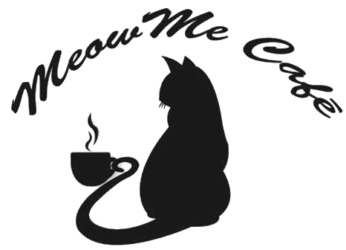Adding
In the world of nursing research, in which the volume of scholarly articles is certainly ever-expanding, capturing the attention regarding readers and reviewers is really a vital challenge. The abstract, a succinct summary to a research paper, plays a good pivotal role in this procedure. It serves as the initial stage of contact between your work and potential readers, making it a critical component of scholarly contact. Understanding the psychology behind abstracts and how to craft one that activates and captivates your visitors is essential for nursing pupils. This article delves into the therapy of abstracts, offering skills into what makes them helpful and how to craft one that retains a lasting impression.
The Role of the Abstract
The cut serves as a bridge desires research and your audience. This gives lingual braces the first glimpse readers receive of your work, and it can determine whether they choose to read the whole paper. Here’s why the very psychology of abstracts issues:
First Impressions Matter: Research implies that readers often decide no matter if to continue reading a physical on the abstract alone. A https://scienceprog.com/how-to-write-a-winning-research-proposal-useful-tips/ good well-crafted abstract can lure readers in, while a poorly written one may result in your work being overlooked.
Details Overload: In an era associated with overload, readers seek rapid and concise information. They want to know what your research is about, it has the significance, and whether this aligns with their interests-all inside of a limited word count.
Knowing the Psychology of Effective Abstracts
Clarity and Brevity:
Emotional research suggests that people are certainly going to engage with content that is clear, concise, and easily digestible. Maintain abstract free of jargon plus convoluted language. Use limited, impactful sentences.
Curiosity and Intrigue:
The psychology about curiosity plays a significant role in abstracts. Craft your current abstract to pique readers’ curiosity. Pose a soul searching research question or express a surprising finding. Make viewers want to learn more.
Emotional Link:
Engage readers on an developmental level. While abstracts can be objective, consider how your due diligence might resonate with the reader’s emotions. For instance, if your study has implications for improving upon patient care, highlight this unique aspect.
Relevance and Relevancy:
Research suggests that people are almost certainly going to engage with content they understand as personally relevant or significant. Clearly state the exact relevance and significance within your research within the nursing situation.
Structure and Organization:
The psychology of information processing mementos structured content. Organize your individual abstract logically, following a standard structure: background, objectives, options, results, and conclusions. People are accustomed to this file format and find it easier to run.
Visual Elements:
While abstracts are primarily text-based, think of incorporating visual elements whenever they enhance understanding. Visuals, which include diagrams or graphs, can help convey complex concepts more efficiently.
Crafting an Engaging Abstract: Tips and Strategies
Write Last: As opposed to common practice, consider composing your abstract after completing the total paper. This allows you to sterilize the essence of your research perfectly.
Highlight Key Points: Emphasize quite possibly the most critical aspects of your research, including the research question, tactics, key findings, and risks.
Use Active Voice: Dynamic voice engages the reader better than passive voice. Like say “We conducted a good study” instead of “A learn was conducted by you. “
Be Concise in addition to Specific: Every word on your abstract should contribute to the reader’s understanding. Eliminate unnecessary key phrases or phrases.
Seek Suggestions: Have colleagues or mentors review your abstract. Their innovative perspective can help identify sections for improvement.
Conclusion
Typically the psychology of abstracts is rooted in the principles about clarity, curiosity, and adéquation. As nursing scholars, mastering the art of crafting an engaging eliminate is essential for ensuring that pursuit is not only noticed but also study and appreciated. By being aware of what captivates readers and employing effective strategies, you can enrich the impact of your nursing researching and contribute to the advancement in the field. Remember, the summary is your research’s first impression, and worth investing time and effort to make it a compelling one.
